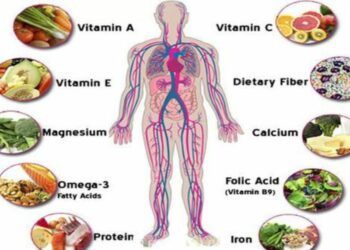
Introduction
Vitamin C, also known as ascorbic acid, is an essential nutrient that plays a crucial role in maintaining overall health and well-being. It is a water-soluble vitamin that cannot be produced by the human body, so it must be obtained through diet or supplements. Beyond its well-known benefits in boosting immunity, vitamin C has a wide range of functions and benefits throughout the body. In this article, we will explore the power of vitamin C and its role in enhancing immunity and promoting general health.
Strengthening the Immune System
One of the most well-known benefits of vitamin C is its ability to strengthen the immune system. It plays a vital role in supporting various immune functions, including the production of white blood cells, which are essential for fighting off infections. Vitamin C also acts as a powerful antioxidant, protecting immune cells from damage caused by harmful free radicals. Regular intake of vitamin C has been shown to reduce the severity and duration of common colds and flu.
Antioxidant Properties
Vitamin C is a potent antioxidant that helps protect the body against oxidative stress. Oxidative stress occurs when there is an imbalance between the production of harmful free radicals and the body’s ability to neutralize them. Free radicals can damage cells and contribute to the development of various chronic diseases, such as heart disease and cancer. Vitamin C helps neutralize free radicals and regenerates other antioxidants in the body, such as vitamin E, further enhancing their effectiveness.
Collagen Production and Skin Health
Collagen is a protein that provides structure to the skin, bones, tendons, and ligaments. Vitamin C plays a critical role in the synthesis of collagen, making it essential for maintaining healthy skin. Adequate vitamin C intake helps promote wound healing, reduces the appearance of wrinkles and fine lines, and improves skin elasticity. Additionally, vitamin C protects the skin from damage caused by UV radiation and environmental pollutants.
Cardiovascular Health
Vitamin C has been linked to improved cardiovascular health due to its antioxidant properties and its role in maintaining blood vessel integrity. It helps protect against the oxidation of low-density lipoprotein (LDL) cholesterol, often referred to as “bad” cholesterol, reducing the risk of plaque formation in the arteries. Studies have shown that higher vitamin C intake is associated with a decreased risk of heart disease, stroke, and high blood pressure.
Iron Absorption
Iron is an essential mineral required for the production of red blood cells and the transport of oxygen throughout the body. Vitamin C enhances the absorption of non-heme iron, the form of iron found in plant-based foods. By consuming vitamin C-rich foods or supplements alongside iron-rich foods, you can improve your body’s ability to absorb iron and prevent iron deficiency anemia.
Brain Health and Cognitive Function
Vitamin C plays a role in the synthesis of neurotransmitters, the chemical messengers that facilitate communication between brain cells. Adequate levels of vitamin C are associated with better cognitive function, improved mood, and a reduced risk of neurodegenerative diseases such as Alzheimer’s and Parkinson’s. Its antioxidant properties also help protect the brain from oxidative damage, supporting overall brain health.
Conclusion
Vitamin C is an essential nutrient with a wide range of functions and benefits beyond its well-known role in boosting immunity. From strengthening the immune system to promoting cardiovascular health, supporting collagen synthesis, and improving brain function, vitamin C plays a crucial role in maintaining overall health and well-being. Ensure you meet your daily vitamin C requirements through a balanced diet rich in fruits and vegetables or consider supplements if needed. Harness the power of vitamin C and unleash its full potential for a healthier and happier life.






